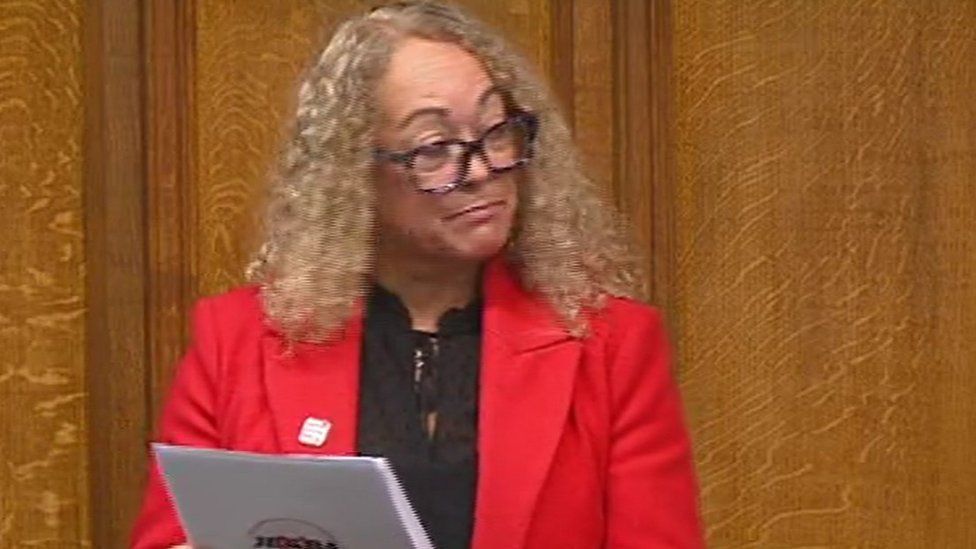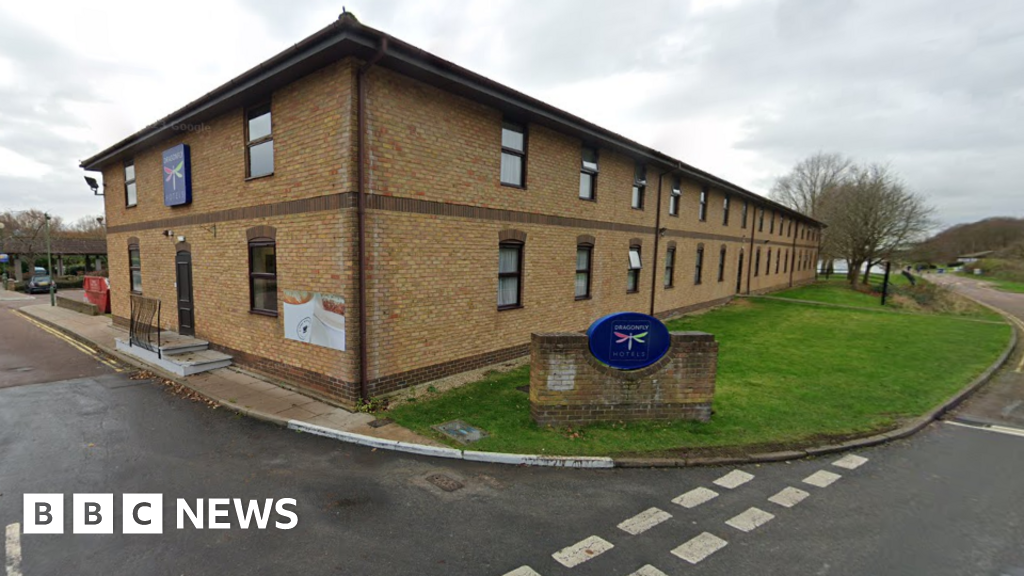ARTICLE AD BOX
 Image source, BBC Parliament
Image source, BBC Parliament
Ms Johnson told MPs people were "being sent to prison for crimes they did not commit"
By Rumeana Jahangir & PA Media
BBC News
Campaigners have compared "miscarriages of justice" for those convicted under joint enterprise with the Post Office Horizon scandal.
The principle allows people who assist or encourage another to commit a murder to be convicted for the same crime.
However, Liverpool Riverside MP Kim Johnson told the Commons something had "gone profoundly wrong" with its application in recent decades.
People were "being sent to prison for crimes they did not commit", she added.
Referring to campaigners from Joint Enterprise Not Guilty by Association, the Labour MP said they had described its use as "a miscarriage of justice on the same scale as the Post Office Horizon scandal", which saw hundreds of sub-postmasters wrongly prosecuted.
Ms Johnson said there was "cross-party consensus that things need to change" as she moved her Joint Enterprise (Significant Contribution) Bill at a second reading.
Before 2016, a person could be found guilty by association if the court decided they could reasonably foresee the crime, even if they themselves did not intend it.
In 2016, the Supreme Court ruled this aspect of joint enterprise had been misapplied, which meant people could no longer be prosecuted for the possibility of foreseeing a crime, but only if they intended to assist in committing it.
'Very, very necessary'
Ms Johnson said the 2016 judgment was believed to have had "little or no effect" on the number of joint enterprise charges or convictions.
She said her bill sought to return the law to its "original intention".
"Joint enterprise is currently wielded as a blunt instrument by the courts, allowing people who have not made a significant contribution to a murder to receive a mandatory life sentence," she said.
"My bill seeks to enshrine in law that only where a person is proven to have significantly contributed to a crime can they be prosecuted under joint enterprise."
She said the bill would "raise the bar for prosecution" and enable juries to differentiate between defendants who deserve a mandatory life sentence and those who do not.
She said the current law had "destroyed so many lives", adding: "Something has gone profoundly wrong with the way the law has been used for the past 40 years."
Campaigners in favour of the bill have highlighted that studies often indicated joint enterprise prosecutions were more likely to target young black men and boys.
Islington North MP Jeremy Corbyn said they "end up spending several years in prison for an offence they did not commit and their lives are subsequently damaged severely".
The independent MP said the bill was "very, very necessary and this injustice has gone on for a very, very long time".
Barry Sheerman, the Labour MP for Huddersfield who previously tried to change the law, said the campaign was not about "the guilty getting off", but about "having a justice system that works for everyone".
The debate also saw Philip Davies, the Conservative MP for Shipley, face a shout of "disgraceful" from the opposition benches after he said in a 38-minute speech that he would oppose the bill as "in many regards, the law on joint enterprise doesn't actually go far enough".

 9 months ago
45
9 months ago
45








 English (US)
English (US)